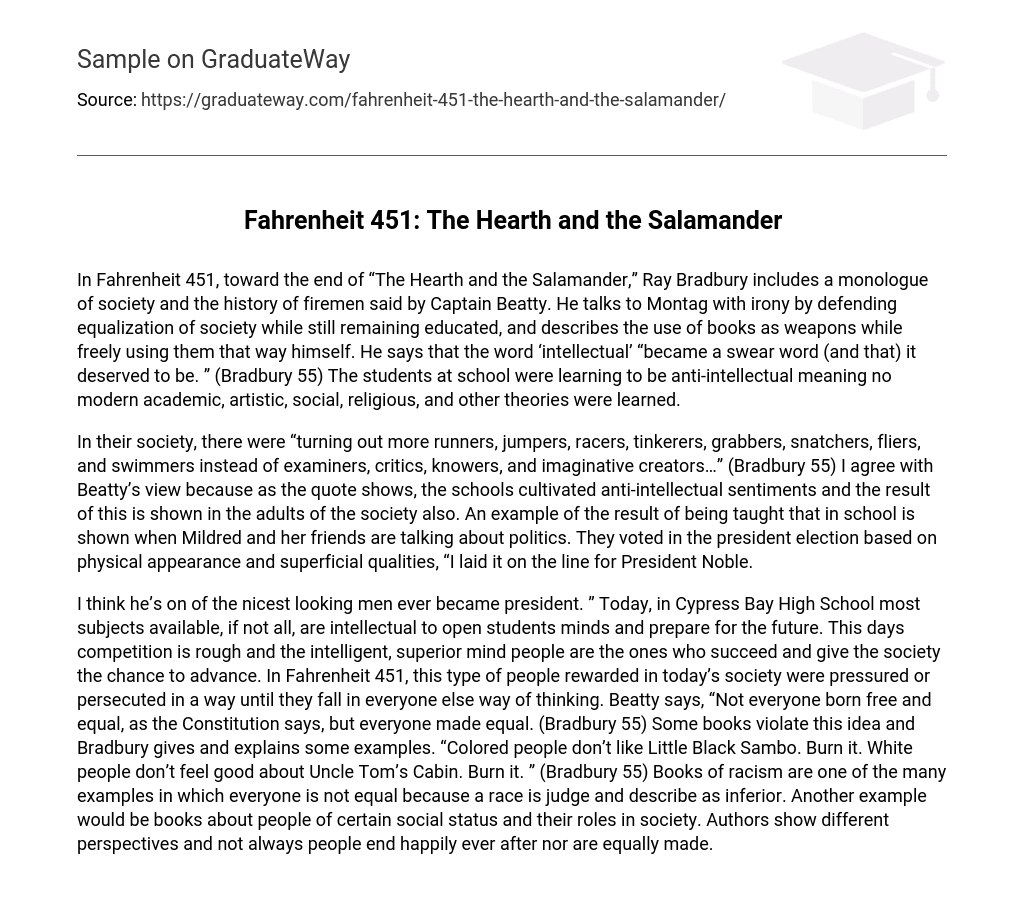In “The Hearth and the Salamander” in Fahrenheit 451, Ray Bradbury includes a monologue by Captain Beatty towards the end of the chapter. Captain Beatty ironically defends the idea of society being equal while still remaining educated. He also discusses how books are used as weapons, even though he freely uses them that way himself. He states that the word ‘intellectual’ has become a swear word and he believes it deserves to be. In the school, students were taught to be anti-intellectual and were not exposed to modern academic, artistic, social, religious, and other theories.
In their society, there was a focus on producing athletes and skilled individuals rather than intellectuals and creative thinkers (Bradbury 55). I agree with Beatty’s perspective because it is evident that the schools fostered a culture of anti-intellectualism, which is reflected in the attitudes of the adults in society. This can be seen when Mildred and her friends discuss politics, as they base their votes on superficial factors such as physical appearance (“I laid it on the line for President Noble”).
The text suggests that the speaker believes the current president is exceptionally attractive. At Cypress Bay High School, all subjects are designed to stimulate students’ intellect and prepare them for the future. In today’s competitive era, success belongs to those who possess superior intelligence and contribute to societal progress. However, in Fahrenheit 451, individuals who are rewarded in society are pressured or persecuted until they conform to the majority’s way of thinking. Beatty explains this by stating that “Not everyone is born free and equal, as the Constitution asserts, but everyone is made equal” (Bradbury 55). Bradbury provides examples of books that challenge this concept by writing that “Colored people don’t appreciate Little Black Sambo. Burn it. White people feel uneasy about Uncle Tom’s Cabin. Burn it” (Bradbury 55). These books on racism demonstrate how not everyone is treated equally because one race is judged and considered inferior. Additionally, there are books exploring the roles of individuals from different social statuses in society – these present various perspectives showing that not everyone lives happily ever after nor receives equal treatment.





